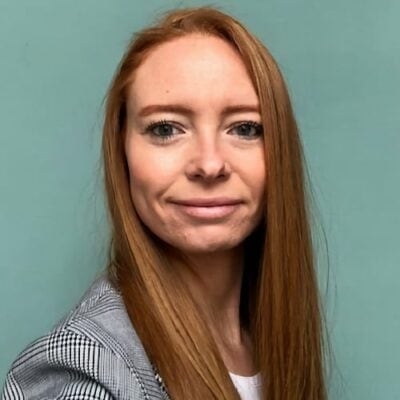Nigeria is now several months into its Open Banking regime, which went live in March this year after the Central Bank of Nigeria approved the operational guidelines.
In becoming the first African country to roll out an Open Banking framework, Nigeria may well offer a blueprint for Open Banking that other countries can follow.
The origins of Nigeria’s Open Banking implementation hark back to June 2017, when a group of industry veterans, led by Adedeji Olowe, formed an Open Banking working group – which eventually became Open Banking Nigeria.
The central bank released a regulatory framework for Open Banking in February 2021, which established the rules for data sharing. In May the following year, an industry committee drafted operational guidelines, which became enshrined in law for banks and fintechs supervised by the Central Bank of Nigeria earlier this year.
When asked what the release of the final operational guidelines earlier this year means to him, Olowe, trustee of Open Banking Nigeria, says: “This comes with the satisfaction of moving the largest financial ecosystem in Africa into the modern era and making Nigeria one of the leading Open Banking regimes in the world.”
Which regions have influenced Nigeria?
Like so many other countries around the world, Nigeria has been somewhat influenced by the UK’s approach to Open Banking.
Mainly though, Nigeria has forged its own path to Open Banking, creating a bespoke framework, with some elements more akin to Europe’s second Payment Services Directive (PSD2).

Open Banking Nigeria trustee Adedeji Olowe
As Olowe puts it: “We took a lot of learnings from the UK, such as trying hard to dodge some of the challenges they encountered.”
He added: “The Nigerian Open Banking regulations significantly depart from the UK approach in several ways. For example, while the UK is based around the AISP and PISP players, the Nigerian implementation is based around the ‘API Consumer’ and ‘API Provider’ domains.
“We have also included several functions not found in the UK or PSD2, such as direct debits – to jumpstart our subscription economy – virtual accounts, and card management.”
So, what type of Open Banking ecosystem has Nigeria ended up with?
Lauren Jones, director, market development at Open Banking Exchange, agrees that some aspects of the guidelines established in Nigeria are like PSD2. “Particularly in the way the regulator has laid down the regulation and is largely leaving the market to coordinate itself,” she explains. “It also allows for any type of organisation to participate in the Open Banking ecosystem – not only financial institutions.”
She notes that there are key differences, too, as Olowe alluded to.
Jones says: “Open Banking in Nigeria focuses on the notion of ‘API providers’ and ‘API users’ – this is a marked change from Europe. APIs are not specifically called out in PSD2.
“Also, the Central Bank of Nigeria adopted a broad eligibility approach to API providers; an API provider can be a licensed financial institution/service provider, a fast-moving consumer goods (FMCG) company, a retailer, payroll service bureau – this is a much larger scope than in Europe.
“The framework in Nigeria also calls for API providers and consumers to execute Service Level Agreements (SLAs), which will govern their relationships. This is not the case in Europe, where ASPSPs specifically should not require any contracts with the TPPs, although there can be stipulations around API performance in practice.”
Finally, she points to “much more stringent requirements around dispute management” in Nigeria, as well as reporting obligations to the counterparty – the API provider/consumer – on performance levels, statistics of incidents/problems, SLA compliance, number and category of fraud and disputes.
The Nigeria Data Protection Regulation (NDPR), which was introduced in 2019, is often described as a foundational pillar for Open Banking.
Olowe says that the NDPR “holds the Open Banking structure in place”, adding that “without laws providing comfort to account holders, the power that Open Banking provides could lead to widespread abuse”.
He notes that, in Europe, data privacy is underpinned by GDPR, the General Data Protection Regulation.
Engaging banks and fintechs
Countries where Open Banking has been live for some time will recognise how important it is to get buy-in from the banks and fintechs. Afterall, Open Banking is only as good as its ecosystem participants make it.
In Nigeria, there has been widespread support from the financial services industry, according to Olowe.
“The stakeholders in the financial ecosystem in Nigeria have been highly enthusiastic about Open Banking, while the fintechs cannot wait to see everyone go live,” he says.
“The Central Bank of Nigeria (CBN) always has prioritised industry innovations and expansion. While working on the operational guidelines, the CBN took a unique approach to getting the industry to draft most rules.”
He also points to the work of Sterling Bank, a large commercial bank in Nigeria, which has been “a major financial backer of the Open Banking initiative”.

Lauren Jones of Open Banking Exchange
Jones is keen to acknowledge the work of Open Banking Nigeria, which she says is a “powerful model” that other countries should consider.
“The non-incumbent Open Banking community has created Open Banking Nigeria – a consortium of fintechs that are operating Open Banking-based businesses and have a significant interest in the developments of the market,” she explains.
“They have been hugely effective in providing a collective voice into government and regulators on requirements from a legislative perspective and operational perspective. They were instrumental in the development of the operational guidelines.”
Emerging use cases
Use cases are one measure of an Open Banking implementation’s success.
Nigeria’s financial institutions have wasted no time, it would appear, in coming to market with innovative use cases.
The banks are keen to use Open Banking as a driver of cash management and collections for their corporate customers, according to Olowe.
“For example, corporate customers would be able to see all their bank accounts across several banks at once and use Open Banking to automatically move funds around as required,” he says.
Meanwhile, fintechs see Open Banking as an opportunity to drive subscription and other recurring payments, adds Olowe, and digital lenders want to use the data from Open Banking to make better loan decisions and more assured repayments using direct debit.
Jones points out that financial inclusion is a key aspect of Open Banking in Nigeria and is “not just about financial access but genuine inclusion”.
“Over 45 million Nigerians have access to affordable financial products and services. Despite this, many Nigerians are outside the formal banking sector,” she explains. “Open Banking can really help in bridging the gap with the informal and formal banking sector.”
An Open Banking blueprint?
“The success of Open Banking in Nigeria could form a framework for other African countries, especially those seeking cost-effective means of designing and implementing standards to meet their needs,” Olowe says.
“Many developing countries appreciate the UK’s approach, but deem it heavy and not flexible enough for the peculiar needs of the African financial ecosystem.”
Meanwhile, Jones believes Nigeria’s framework can provide “a useful tool for other nations seeking a lightweight regulatory approach”.
“CBN has published lightweight regulation alongside stronger operational guidelines. This two-tiered approach may be effective.”
She adds: “However, Open Banking Exchange generally advocates a central governance framework to support the development and rollout of Open Banking. We are not seeing this in Nigeria yet.”










